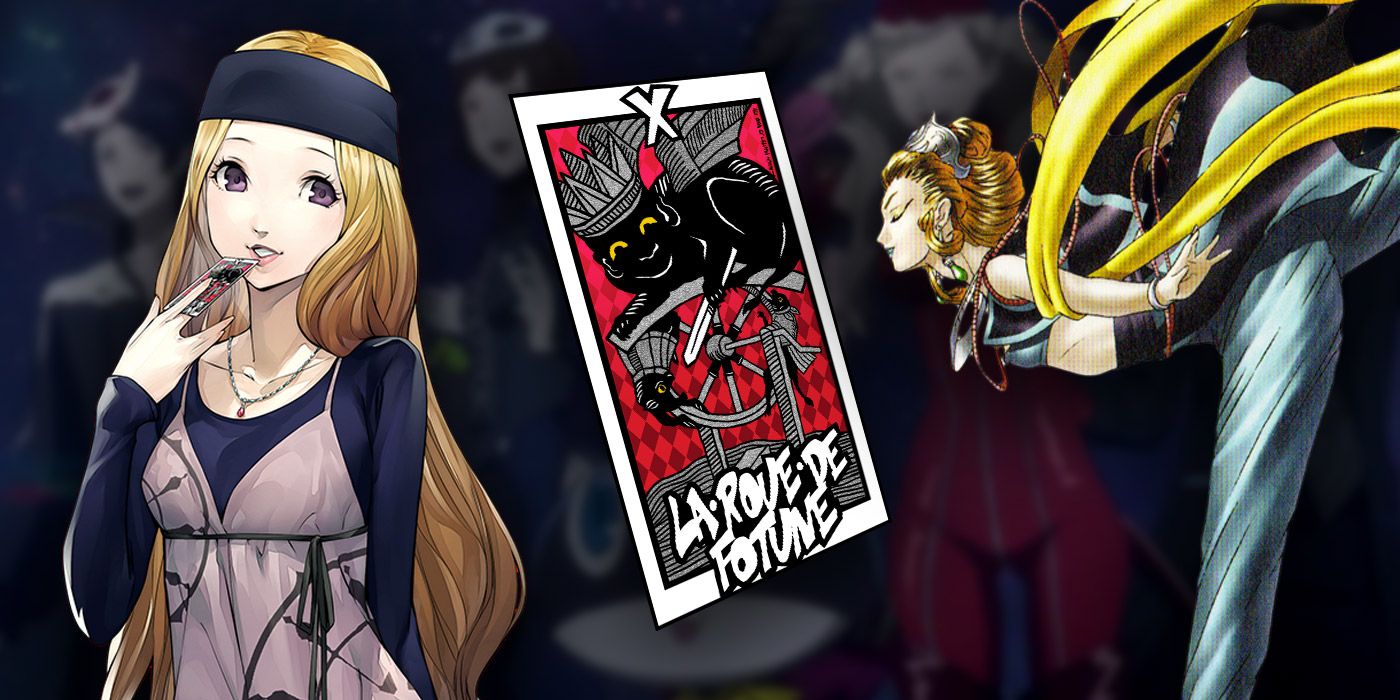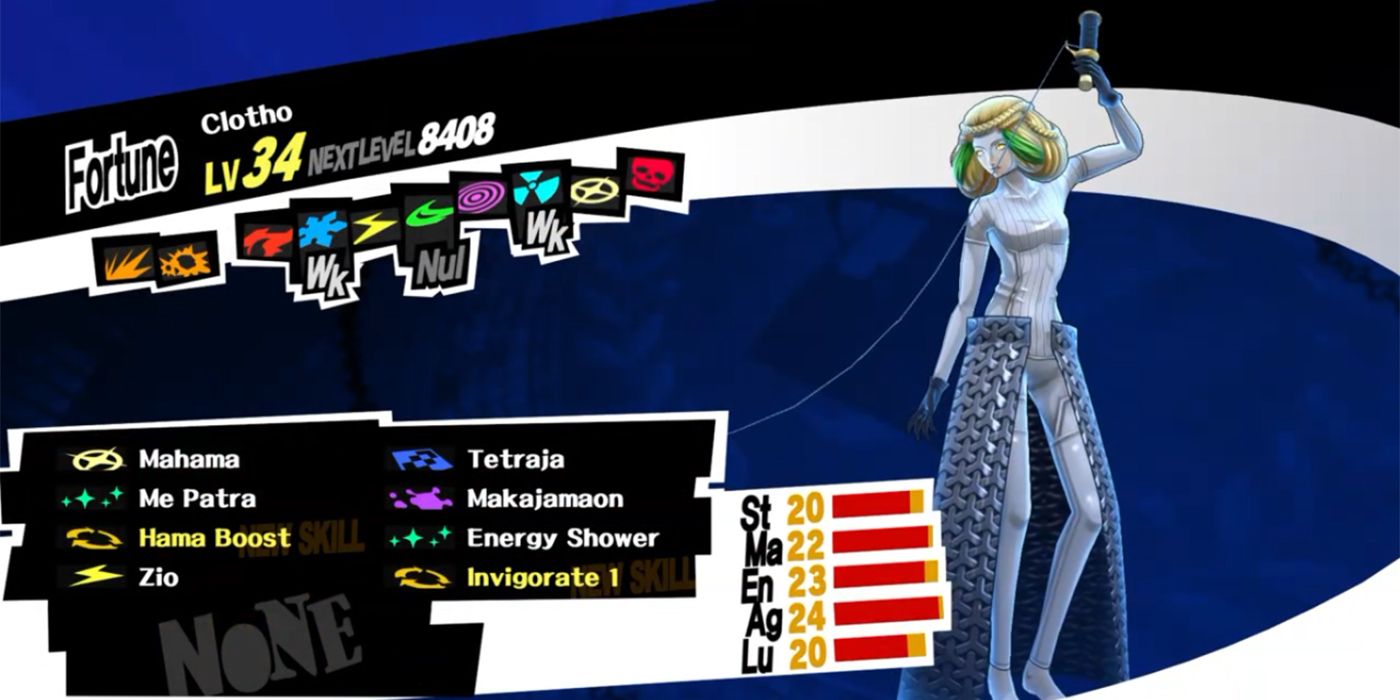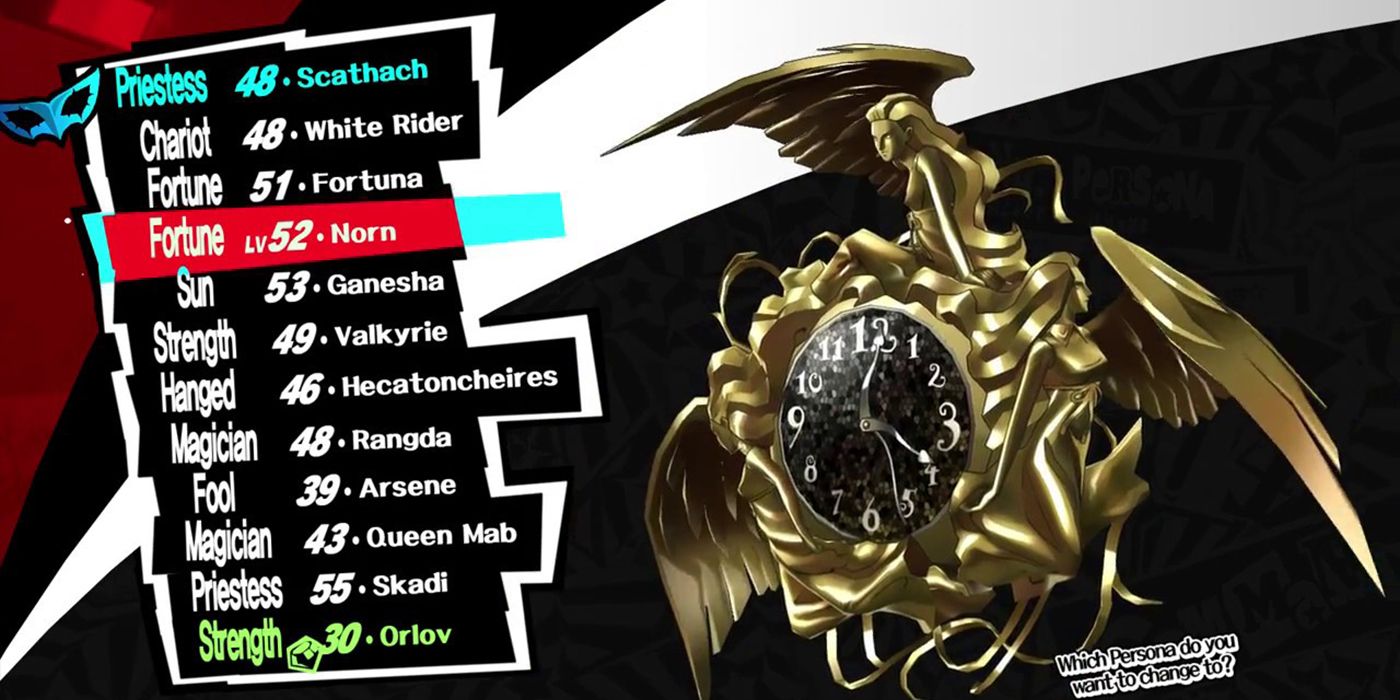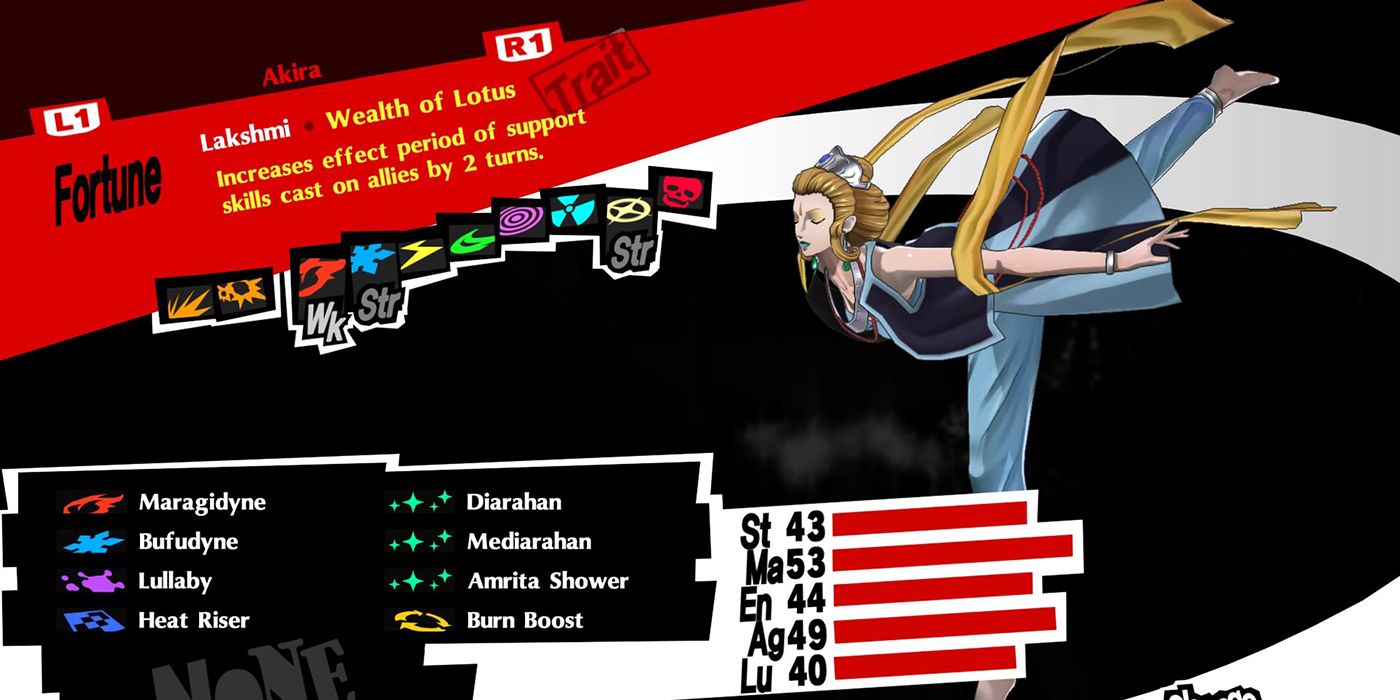
Lady Luck is a fickle mistress, and Persona 5 does an admirable job of capturing her duality with the personas from the Wheel of Fortune arcana. In a tarot card spread, the Wheel of Fortune refers to turning points—moments when a person's luck changes, either for good or ill. When upright, the card represents epiphanies or lucky breaks, while its reversed position refers to misfortune or resistance to change, and resignation specifically. But in Persona 5, the difference between the two is a matter of personal perspective and initiative.
As the Wheel of Fortune's confidant, Chihaya's job as a fortune teller is a little on-the-nose, but her dilemma and character arc have more depth than they may appear to at first glance. Chihaya tries to use her tarot card readings to provide people with advice that can lead to positive changes in their lives, but because she believes she has no control over her own fate, she often concludes that disastrous readings are irrefutable. Joker swings into the rescue as a figure of rebellion, using the wild card power of the fool arcana to oppose his own bad luck, and shepherd Chihaya onto a healthier, more productive life path.
RELATED: Persona 5 Royal: The Heroes and Legends of the Strength Arcana
Resignation is the great enemy of Fortune, regardless of whether one's luck is currently good or bad. If things are on the up and up, resignation leads to complacency, and if things are already bad, they tend to stay that way. A reoccurring theme in the persona's of the Wheel of Fortune arcana is that the figures are not gamblers or even risktakers, but opportunists. Like the Phantom Thieves facing impossible odds, they create their own luck.

Trinities of women are common in folklore—especially the generational triad of mother, maiden, and crone. The other most common trope is that of the "weird sisters," as seen in Shakespeare's play, Macbeth, which is a tradition that hearkens back at least as far as Greek mythology, to the trio of Moirai sisters. These three sisters weave and snip the threads of fate that determine the course of human lives, and Clotho is the youngest of the three, and fittingly, the first Fortune persona players are likely to encounter. Clotho's sisters, Lachesis and Atropos, can also be obtained later on.
The exact nature of the Moirai is difficult to articulate. Originally, the three daughters were said to be the daughters of the goddess Nyx (whom Hades players will recognize as Zagreus' foster mom) and Erebus, a primordial god born from raw chaos. Though, later in history, their birth is attributed to Zeus and the titaness, Themis. Clotho is technically a goddess and saw some worship as such, though usually, the Moirai are referred to as the personifications of fate itself: a force that even the Olympian gods were beholden to.
Clotho was responsible for spinning threads of fate, while Lachesis drew them, and Atropos snipped them. Clotho's greatest claim to fame though, was the co-invention of the Greek alphabet alongside Hermes. The invention of language is a feat that a surprising number of personas can lay claim to, including the ultimate persona of the Hierophant arcana, Kohryu.

The persona Norn is based on another group of fate-dealing goddesses in Norse mythology known as the Nornir. Fascinatingly, the etymology of the word 'norn' likely derives from a word meaning "to twine," possibly tying their heritage back to the Moirai, or at least the concept of the threads of fate.
Like the Moirai, Nornir determined the course of peoples' lives, and were led by a special trinity: Urd, Verdandi, and Skuld. These three maidens were giantesses (Jotuns), and their duties included drawing water from the Well of Fate to hydrate the roots of the world tree, Yggdrasil, so it wouldn't rot. In a sense, they acted as the caretakers of all creation. But unlike the Moirai, there are numerous Nornir goddesses in Norse mythology.
Nornir were particularly associated with childbirth, and supposedly came to visit newborn children to determine the course of their lives. While the Moirai were a value-neutral force in the Greek world, neither fully good nor evil, the Nornir varied on a case by case basis. There were plenty of Nornir with children's best interest at hearts, but just as many wandering around who delighted in death, disease and other ill-fortune.
RELATED: Persona 5 Royal: The Strongest Personas From The Magician Arcana (& Their Cheapest Fusion Recipes)
Those who have experienced God of War's masterful take on Norse mythology will likely find the name Nornir familiar. The game directly references the destiny-dealing goddesses with its tricky, timed treasure chest puzzles.

The Hindu goddess of fortune, Lakshmi, is the most powerful persona from the Fortune arcana, and also part of a female trinity, or Tridevi. Her sister Parvati, goddess of childbirth and marriage, is a member of the Lover's arcana, and her other sister, Sarasvati, goddess of music and wisdom, is a member of the Empress arcana. These three chief goddesses are married to the three chief gods of Hinduism who are also brothers. Parvati is paired with Shiva, Sarasvati is married to Brahma, and Lakshmi is the wife of Vishnu.
Unlike the other ambivalent forces of fate, Lakshmi is unquestionably good, specifically representing love, beauty, wealth, and prosperity rather than nebulous fate. Lakshmi has eight prominent manifestations known as the Ashtalakshmi (literally translating to "eight Lakshmi"), which symbolize the eight fonts of wealth in the world. These include peace of mind, money, grain, cattle, offspring, courage, victory and knowledge. There are other additional manifestations of Lakshmi with their own distinctive appearances, representing other, specific sources of wealth.
Lakshmi's name is derived from words meaning "to understand the goal," and she traditionally has four arms, which represent the four, noble goals of humanity: dharma (pursuit of morality), artha (pursuit of wealth), kama (pursuit of love), and moksha (pursuit of liberation). Interestingly, Lakshmi's character model is fairly unassuming compared to many of Persona 5's more elaborate persona designs, even though in mythology, each of her incarnations has a detailed description that is rich with symbolic significance.
Persona 5 and Persona 5 Royal are available now for the PlayStation 4.

